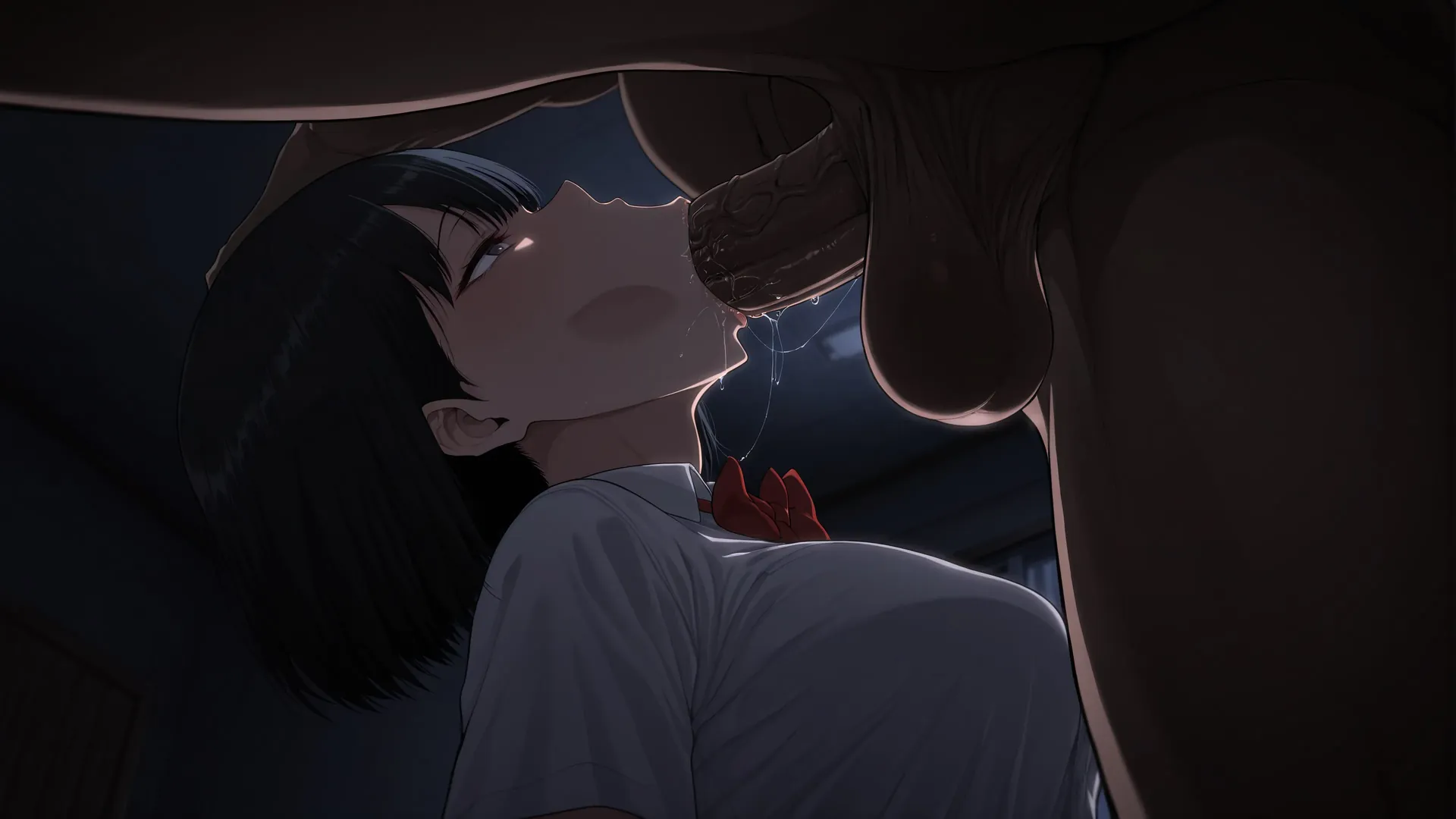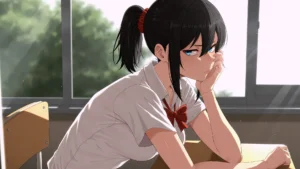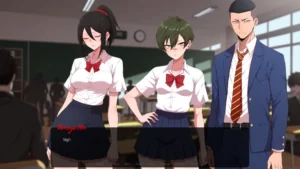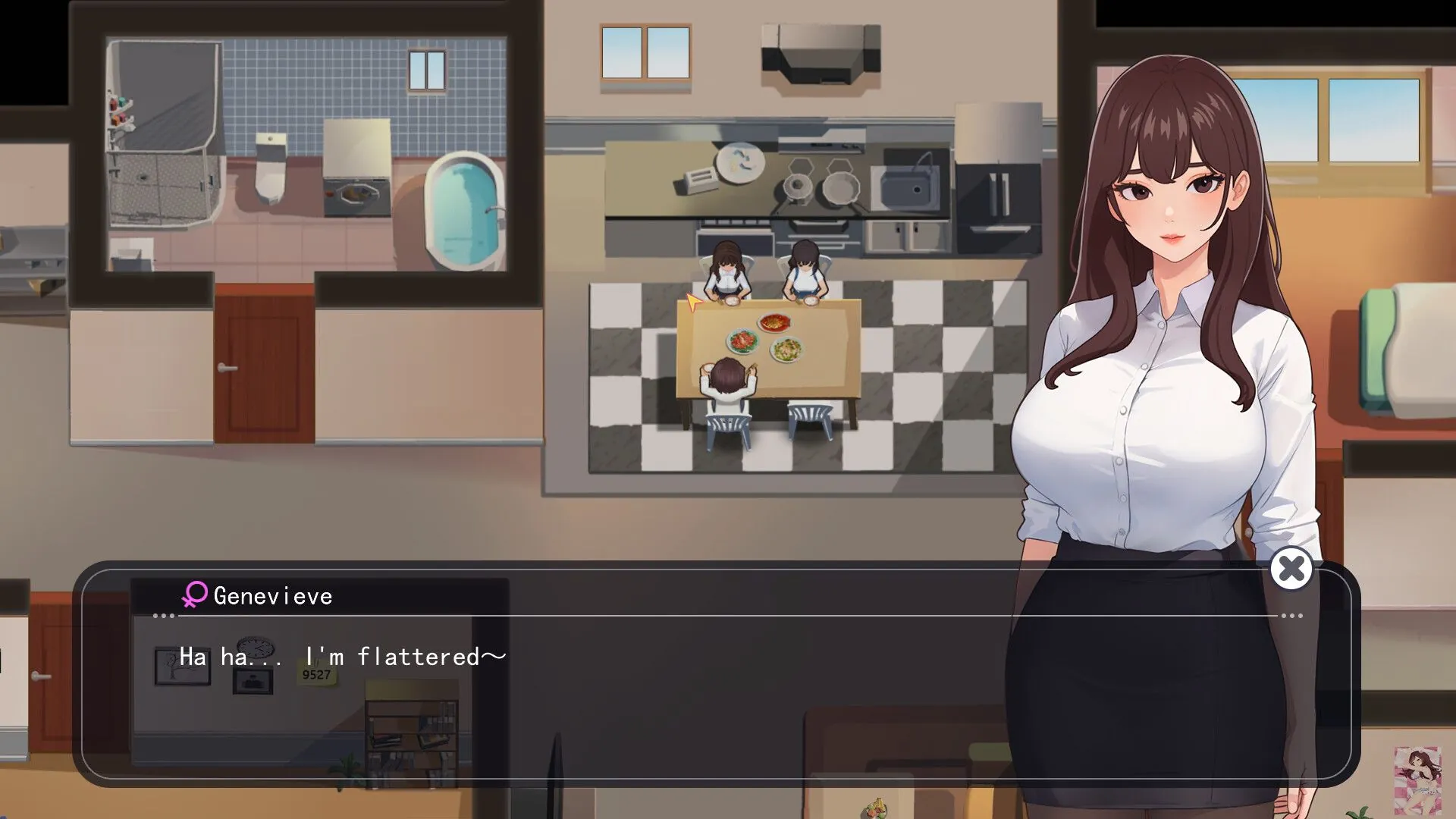
Aperture
Play Aperture
Aperture review
Exploring the Story, Characters, and Gameplay of Aperture
Aperture by Vonsatia is a unique visual novel that blends mystery, emotional drama, and slow corruption themes into an immersive experience. This game stands out for its compelling characters and the gradual unfolding of its story, focusing on the fall of Rin and the player’s increasing anxiety. If you’re curious about what makes Aperture captivating and how to get started, this article will guide you through its core elements and gameplay.
Understanding Aperture: Storyline and Themes
What is the core story of Aperture?
Let me paint you a picture. You start playing Aperture thinking it’s a straightforward, maybe even cozy, visual novel. You’re a photographer, returning to your childhood town, lens in hand, ready to capture memories. It feels nostalgic, peaceful even. But Vonsatia is a master of the bait-and-switch. 😊 The Aperture game story quickly reveals itself to be a labyrinth of unease, where every photograph you take feels less like a memory preserved and more like a secret uncovered.
The core of the Aperture game story is a masterfully woven mystery in Aperture game. You’re not just snapping pretty pictures; you’re piecing together the fragmented history of a place haunted by its past and the people in it. The initial tranquility is a facade, and the game expertly pulls back the layers, revealing a narrative drenched in emotional drama in Aperture. I remember a specific moment, late at night, where a seemingly innocent photo of a deserted playground suddenly took on a sinister meaning based on a diary entry I’d found earlier. My heart actually sank. That’s the power of this narrative—it gets under your skin. The central plot revolves around uncovering a tragic event that the town has collectively tried to bury, and your presence, your camera, acts as the catalyst that stirs everything up.
The genius of the Aperture game story lies in its pacing. It doesn’t rely on jump scares; it builds a profound sense of dread through atmosphere and implication. You feel the weight of silence in empty rooms and the tension in characters’ hesitant dialogues. This is a story about the past refusing to stay dead, and how revisiting it can sometimes break you rather than heal you. The emotional drama in Aperture is palpable, making your journey deeply personal and often heartbreaking. 😥
Who is Rin and what is her role?
If the Aperture game story is the engine, then the Rin character in Aperture is undoubtedly the heart and soul of the entire experience. 🎭 When you first meet Rin, she appears as a beacon of fragile warmth in the gloomy town. She’s a childhood friend, your guide, and the person you feel most connected to. Your interactions with her are the emotional core of the game, and understanding the Rin character in Aperture is key to understanding the game itself.
However, Rin is hiding profound pain. Her cheerful demeanor is a carefully constructed shield, and as you progress, you witness the central theme of slow corruption theme in action. It’s not a sudden, monstrous transformation, but a gradual, heartbreaking erosion. You see the light in her eyes dim ever so slightly with each new piece of the mystery you uncover. Your choices directly influence her state, creating a powerful and often distressing connection between player and character.
“I thought if I just kept smiling, the bad memories would fade. But you’re here with that camera, and now… now I can see everything so clearly again. I don’t know if that’s a good thing.”
This quote from a pivotal scene perfectly captures the essence of the Rin character in Aperture. Your investigation, driven by a desire to help, paradoxically becomes the very thing that unravels her. This relationship is the primary source of player anxiety in Aperture. You are constantly second-guessing your decisions: Is pushing for the truth worth the visible toll it takes on her? Am I saving her or destroying her? This dynamic makes your role as the player incredibly active and emotionally charged.
Here’s a quick look at Rin’s character arc:
| Phase | Rin’s State | Player’s Role |
|---|---|---|
| Beginning | Nostalgic, Warm, Guarded | Reconnecting, Building Trust |
| Middle | Anxious, Withdrawn, Fragile | Uncovering Truths, Making Difficult Choices |
| End | Resolved or Broken (Based on Your Actions) | Facing the Consequences |
What themes drive the game’s narrative?
The Aperture visual novel themes are not just background elements; they are the very fabric of the game, intricately woven into every choice, character interaction, and piece of discovered lore. 🧵 These themes are what elevate the experience from a simple story to a profound psychological journey.
Let’s break down the dominant Aperture visual novel themes:
-
The Destructive Power of Truth: The game constantly questions whether some memories are better left buried. The pursuit of truth is portrayed not as a noble, clear-cut quest, but as a potentially damaging force. This creates immense emotional drama in Aperture as you weigh your curiosity against the well-being of the characters, especially Rin.
-
Atmosphere as a Narrative Tool: The mystery in Aperture game is amplified by its oppressive atmosphere. The town itself is a character—silent, watchful, and heavy with secrets. The sound design, the muted color palette, and the slow pacing all work in tandem to build a sense of unease that is central to the experience.
-
The Illusion of Control and Player Anxiety: This is a brilliant theme. You hold a camera, an instrument of control and perspective, yet you are ultimately powerless to stop the slow corruption theme you witness. This dichotomy is a primary driver of player anxiety in Aperture. You feel responsible for the outcome, yet the game reminds you that some wounds are too deep for you to heal, making your agency feel both significant and frustratingly limited. 😟
-
Memory and Perception: Your camera literalizes this theme. What you choose to photograph, and how you interpret those images, shapes your understanding of the story. The game plays with unreliable narration, suggesting that memory is not a perfect recording but a subjective, malleable thing.
To see how these themes create the game’s unique emotional impact, consider this cycle:
| Theme | How It Manifests | Emotional Impact on Player |
|---|---|---|
| Slow Corruption | Rin’s gradual emotional decline | Helplessness, Guilt |
| Mystery | Uncovering hidden town secrets | Curiosity, Dread |
| Emotional Drama | Confrontations and heartfelt dialogues | Empathy, Sadness |
| Player Anxiety | Weight of consequential choices | Tension, Second-Guessing |
Ultimately, the Aperture visual novel themes converge to create a deeply immersive and affecting experience. The slow corruption theme isn’t just about Rin; it’s about the corrosion of your own peace of mind as you play. The mystery in Aperture game is less about “whodunit” and more about the psychological “why.” And the profound emotional drama in Aperture ensures that long after you’ve put the game down, you’re still thinking about the characters and the weight of your choices. It’s a story that holds a mirror to the player, asking how far you would go for the truth, and what you would be willing to break in the process. 🤔
Aperture offers a compelling blend of mystery, emotional storytelling, and immersive gameplay that resonates deeply with its players. Through its rich narrative and complex characters like Rin, the game explores themes of slow corruption and anxiety in a unique way. Whether you’re new to visual novels or a seasoned player, Aperture provides a memorable experience worth exploring. Dive into the game to uncover its secrets and stay tuned for future chapters that promise to expand this intriguing story.
















